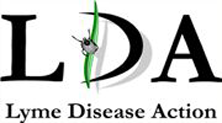The Lyme disease review panel of the Infectious Diseases Society of America (IDSA) has released its long-awaited final report following an enforced review of the controversial 2006 Lyme disease guidelines, which are also used in the UK.
The Department of Health (DoH) is focusing on the headline that these guidelines were upheld in order to justify current DoH recommendations, but there is serious doubt that anyone is reading the detail of the report. Across the UK, according to Lyme Disease Action, the shutters are coming down on patients’ hopes for fair and unbiased diagnosis and treatment.
Stella Huyshe-Shires, chairman of the charity Lyme Disease Action, says: “The headlines are not making clear that there was actually recorded disagreement amongst the panel in two very significant areas:
- “The insistence on a positive test for diagnosis. This was ‘felt to be problematic by some members of the panel’ – in fact, half of them.
- “The insistence that there is no evidence for continuing infection following standard treatment. The panel agreed that the wording needs amending to reflect the reality.”
Unfortunately, in both these cases, the panel members have been able to brush aside their misgivings and delay revision of the wording until some point unknown in the future. Meanwhile patients will be diagnosed and treated under the old guidelines and many people will have to suffer before the next update takes these valid points on board.
Huyshe-Shires comments: “This report does not reflect well on the honesty and scientific integrity of the IDSA panel, which plainly should not have upheld guidelines that were felt to be problematic. The blind acceptance of the conclusion of the report by the Department of Health is likely to be the cause of significant patient suffering. Across the UK people have been, and are being, denied treatment because they can’t remember a rash, they did not notice a tick bite or their symptoms have not been resolved by a short course of antibiotics.
“I doubt very much that the DoH will remind front-line physicians that the panel emphasised that ‘Guidelines are not intended to be (and cannot be) rigid dicta, inflexible rules, or requirements of practice’.”
Much of the evidence for continuing infection is from European research. The IDSA panel argues this may not be valid for America because of what the panel describes as ‘the well established microbiological and clinical distinctions in Lyme borreliosis on the two continents’, but what excuse can the UK Department of Health have for ignoring European science? Says Huyshe-Shires: “Will the UK continue to hide behind this American panel and deny treatment to UK patients? I very much fear so.”
Ends
29 April 2010
Note to Editors:
1) See also the fact sheet on Lyme disease, attached. https://www.lymediseaseaction.org.uk/releases/ldafacts.pdf
2) A Lyme disease poster, showing how to remove a tick correctly, and leaflets on Lyme disease, are available for publication if required or for readers to take to their own local GP or veterinary practice. Please email press
Press: Issued by Lyme Disease Action’s press office (www.lymediseaseaction.org.uk). For more information, or to speak to Stella Huyshe-Shires, the Chair of Lyme Disease Action, please contact Sue Ockwell or Camilla Colley via email – press – or ring 020 8891 4440

 Printer Friendly
Printer Friendly